The challenges for PlayerUnknown's Battlegrounds becoming a great esport
How one of the most popular games on Steam can become one of its best esports.
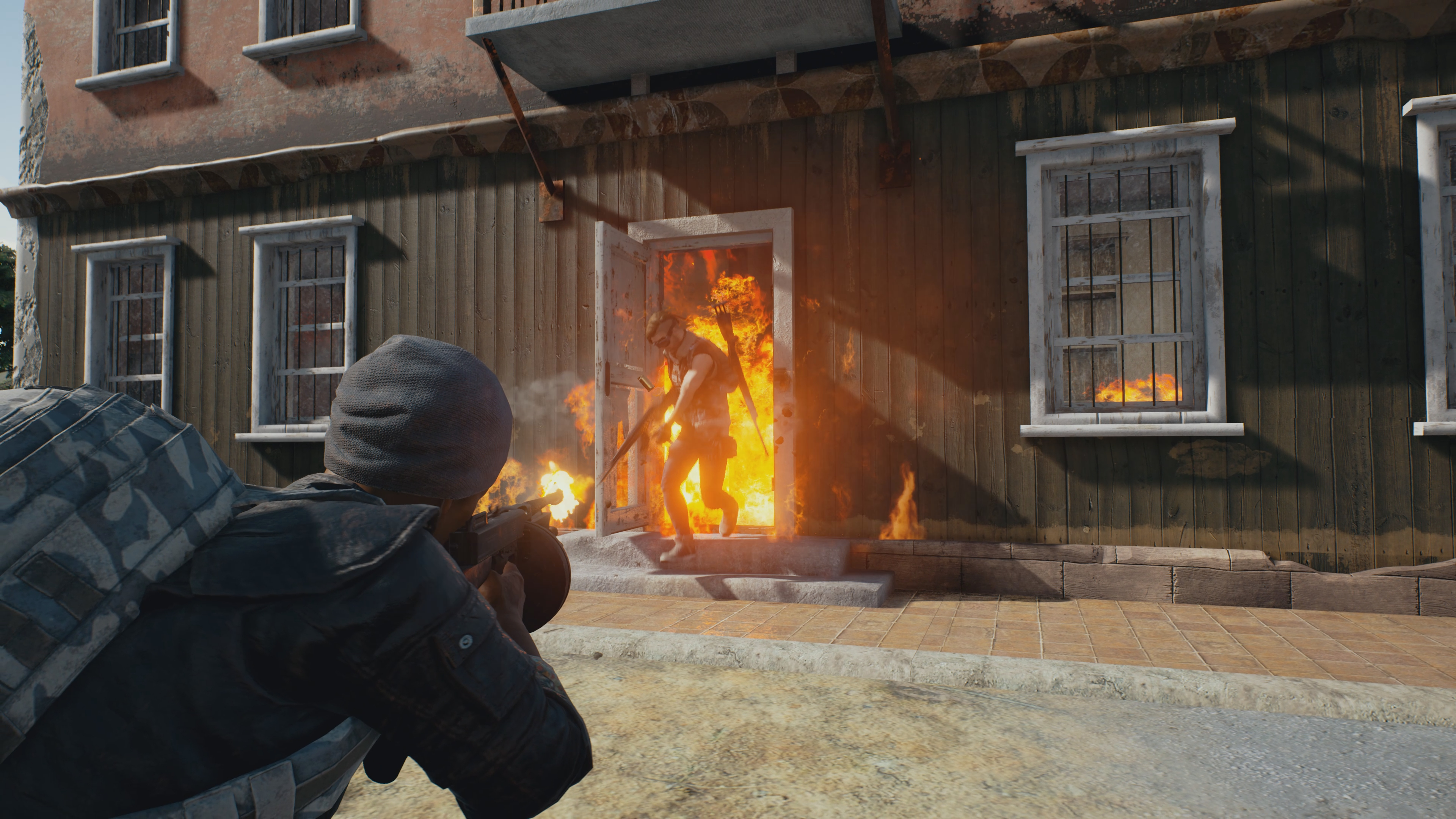
PlayerUnknown's Battlegrounds' esports aspirations shouldn't come as a big surprise. Its concurrent player count on Steam has been staggering, and it's consistently one of the most watched games on Twitch. A game that millions of people love not just play, but follow and spectate? There's a lot of potential in that, as evidenced by the number of teams that have announced a lineup for the game.
With its huge scale and unusual pace, however, Battlegrounds could never be a typical esport. It's a game about slow-burning tension rather than constant, explosive action. I spoke with Brendan 'PlayerUnknown' Greene and streamers Ellohime and Anthony Kongphan to find out how Battlegrounds might overcome these obstacles, or if they're even obstacles at all.
"Ever since I started, way back with the DayZ mod for Arma 2, making the DayZ Battle Royale mode, I always envisioned battle royale as a great esport," Greene says. "I wanted to create spectacle in esports, so instead of two teams of five, you've got 100 players in the centre of an arena, with a stadium full of people cheering."
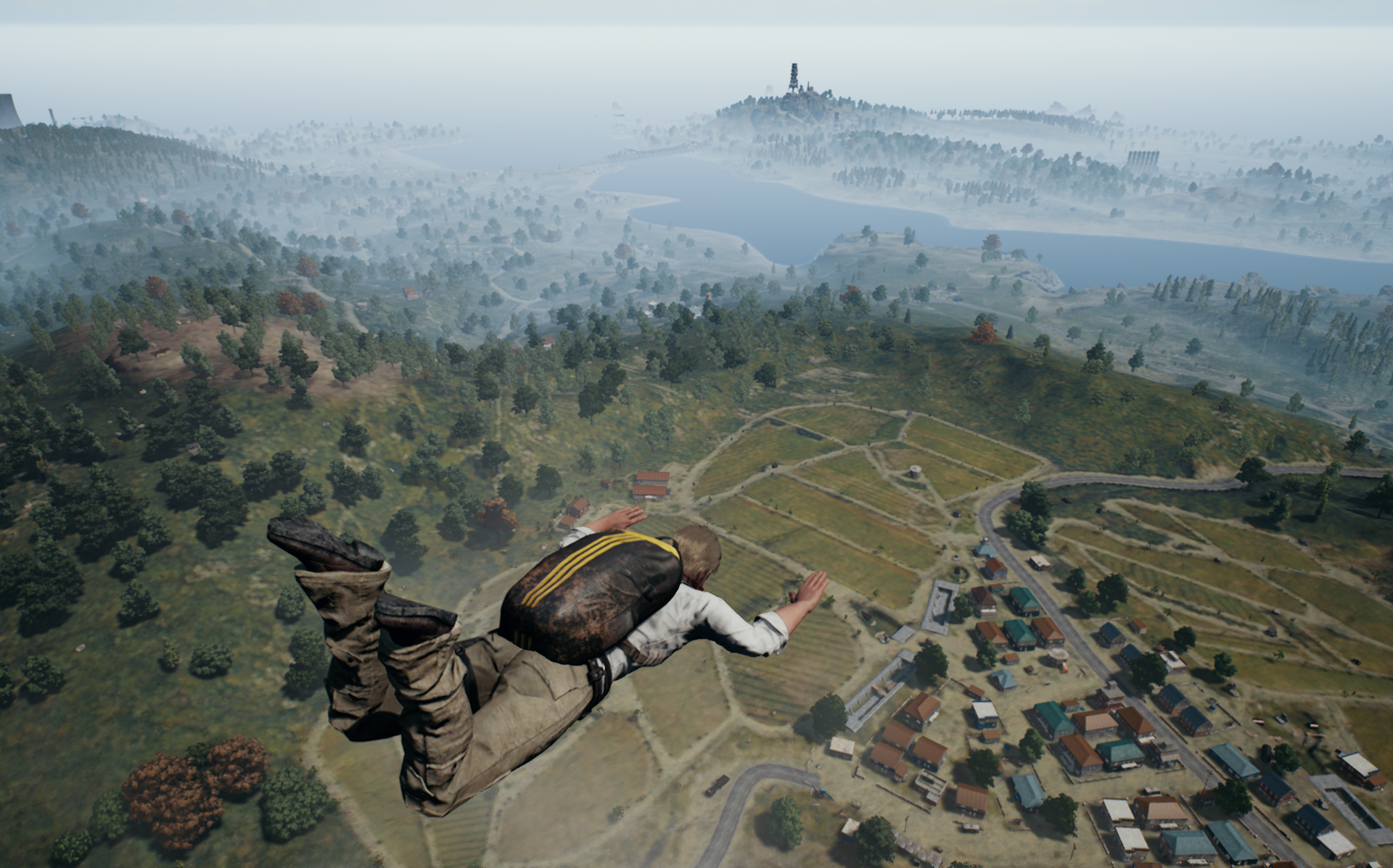
Those competitive battles are in the genre's DNA, but when it came to Battlegrounds, Greene set out to make a good game, first and foremost. A solid, stable experience is the current goal, but if the community is passionate about it becoming an esport as well, then PUBG Corp will do that. Right now, however, the developers are busy researching what the best format for events is, because it's so different from other popular esports. There's a lot to learn, Greene admits.
Ellohime, who was a commentator during the Battlegrounds Dreamhack tournament, thinks that's the right thing to focus on, too. "If I were to change anything, it would be the spectator system, otherwise I believe their 'optimisation first' mantra is a good focus, and they are developing the game at a good pace, something we have been missing with games like these in the past."
His fellow streamer, Anthony Kongphan, is hoping for a shake-up of the meta, which he's started to find boring. "When you reach the top of the leaderboards at the moment, it leads to mass camping and dull, boring gameplay. Randomness in battle royale-style games is what made PUBG exciting, refreshing and fun when it first came out. I have slowly lost interest based on just getting sick and tired of the same top end camping-style meta."
Throughout the year, tournaments have pit Battlegrounds players against each other for glory and prizes, and in August, ESL and the Battlegrounds team joined forces to host the Gamescom Invitational.
Keep up to date with the most important stories and the best deals, as picked by the PC Gamer team.
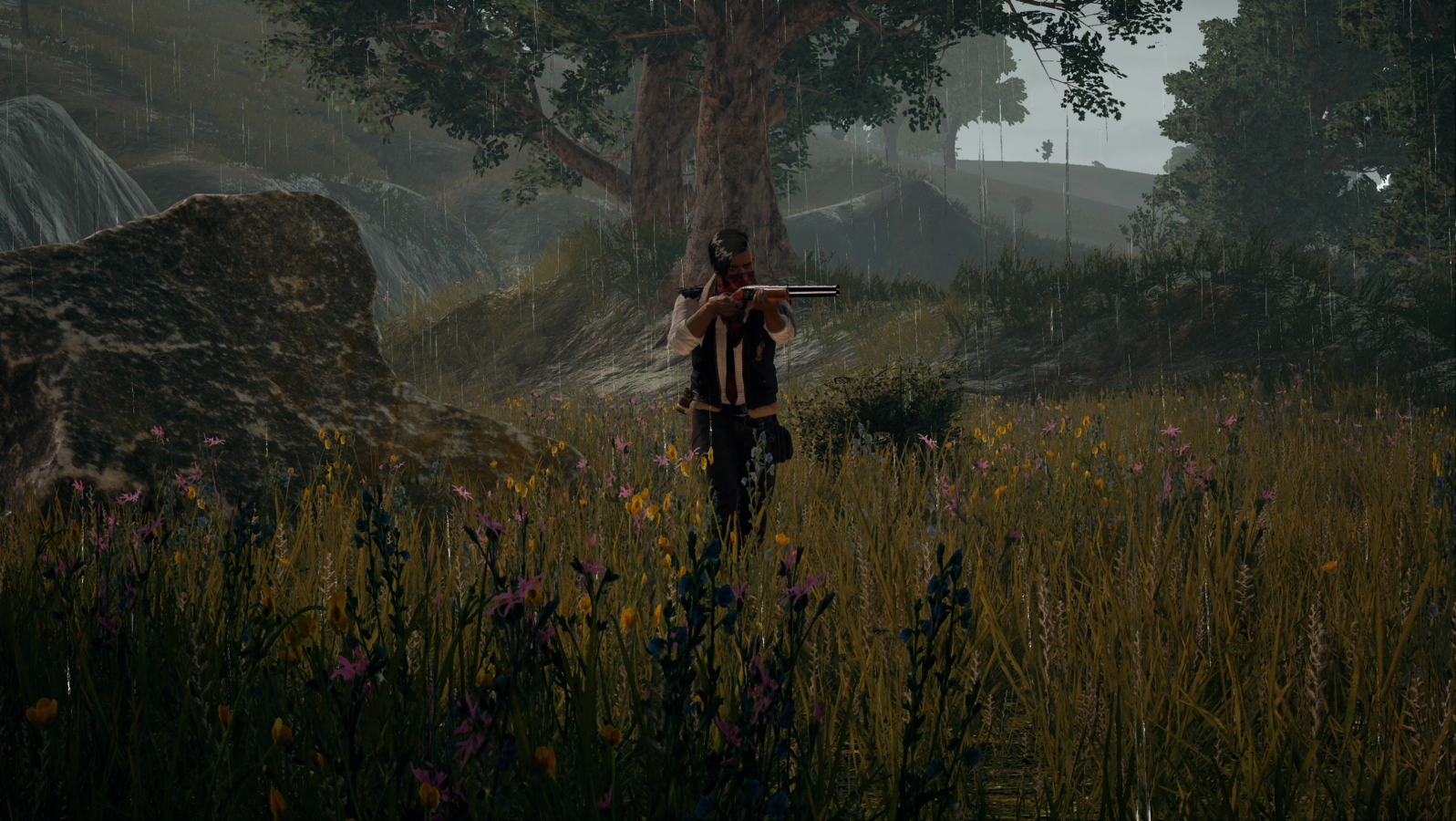
"It really was a learning experience," Greene remembers. "I think you saw that over the course of the four days, we got better with each day, and that's what we hope to do with all events: we learn and we improve. It wasn't a perfect event by any means, and there was a lot we learned from it. You know, I tip my hat to the team; every problem that came up, they dealt with, and all the players that were there—while some of them were grumpy—they really carried themselves professionally."
With a big event like the Invitational, there's a large heap of logistical problems that need to be overcome. Even in long-running esports like CS:GO, problems occur, but with those events, the organisers are maybe only worrying about ten PCs. During the Invitational, Greene and his colleagues had to worry about a whopping 80 rigs and a much larger group of players. It's tough to organise, he admits, but he's eager to show off what they've learned in future events.
Ellohime got to witness a lot of this when he was a Dreamhack commentator, and though there were some growing pains, he considers it a success. "I felt like I was watching new parents raise an infant. How delicate a tightrope walk it must be to have a game become so popular so quickly and trying to capitalise on that success. You want to move quickly, but not so quickly as to make mistakes or cause instability. These were baby steps for a genre just trying to find its balance. I think they did exactly what they were supposed to do: allow Bluehole to get a good feel of what they have and what they can do with it on a competitive level at a big event."
Slow burn
Aside from logistical concerns, Battlegrounds is also designed in such a way that spectators don't get the usual esports viewing experience, where there are only a handful of players to watch, and there's usually some exciting action taking place somewhere on the map. Instead, up to 100 players need to be tracked, and the first half of the match might see the majority of them simply hiding and gearing up. Greene doesn't see this as a problem, though.
"You're going to get people who want all action, all the time, but when I was first designing the battle royale game mode, that's not what it's about. The first half of the match is really about getting your character geared up, preparing for the fight that's going to happen later in the game. There's always going to be downtime, but because of the number of kills that happen, this downtime can be used for replays and stuff like that. So you'll always see some action, but for me, battle royale is about the story the character takes through the round. And we have time to tell that story."
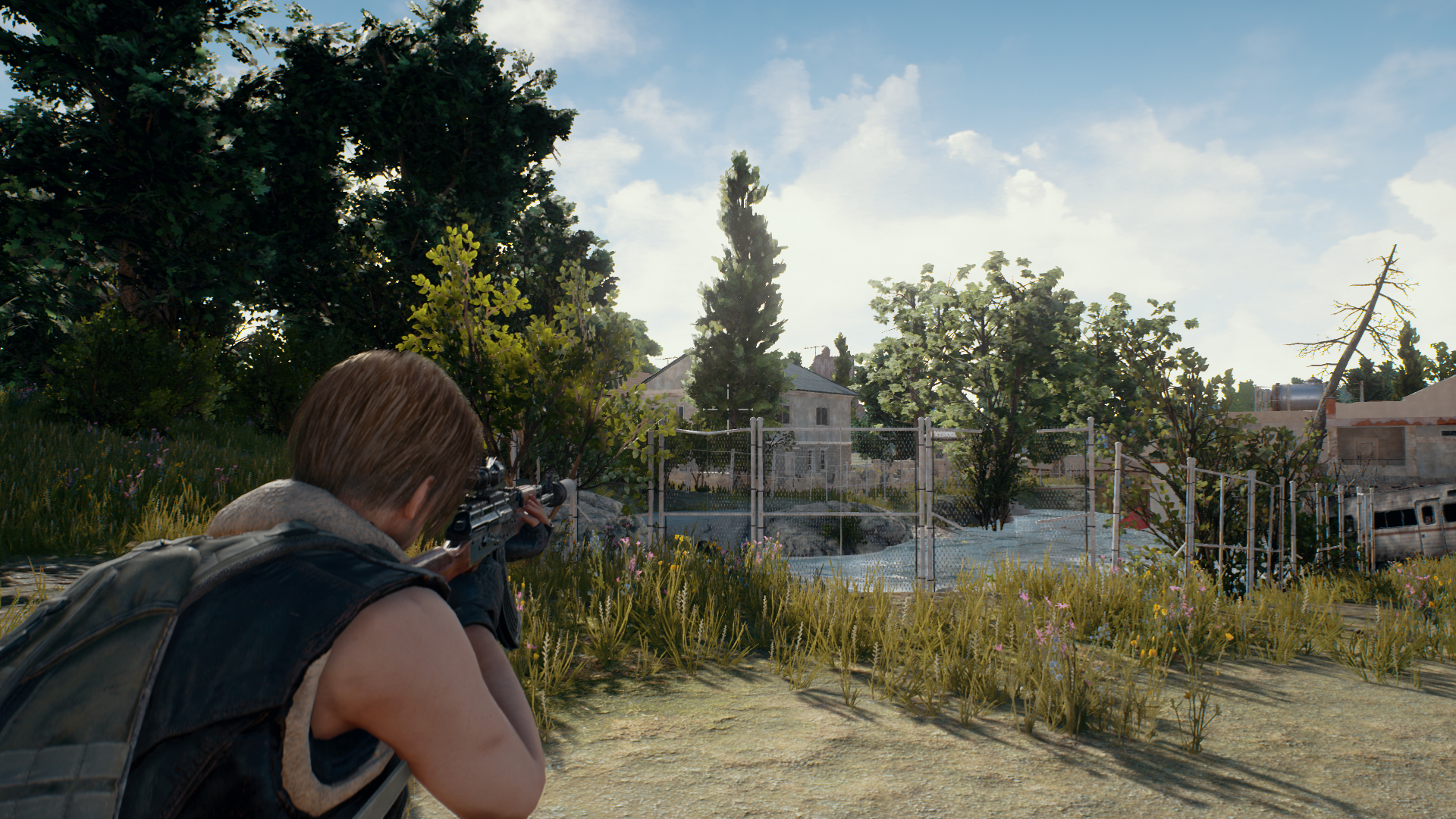
Ellohime likens it to the difference between golf and hockey. While hockey is aggressive and physical, golf is slow and quiet, until it builds up to these big moments. It's that slow beginning, he says, that makes the end-game more chaotic and exciting. Kongphan, on the other hand, thinks it needs more aggression, and more incentives to be aggressive.
"There need to be more incentives in aggressive gameplay in battle royale games, or else it ends up being whoever can 'hide' or 'camp' the best wins. Most of the comments I received from viewers [watching the tournament] was that it was not very entertaining action-wise."
"PUBG is insanely relatable in this regard due to the popularity of The Hunger Games and Battle Royale movies. I can explain the premise in a sentence and people immediately understand what they are watching."
Ellohime
Despite this, Kongphan still believes that there are things that can help make Battlegrounds stand out, as an esport. "Since it is a battle royale and revolves around item luck and end game circle luck, it won't ever be as perfectly balanced as games like Counter-Strike or Call of Duty, but given its sporadic nature, it brings more to the table in terms of entertainment for viewers, which in the end I think is most important."
While Greene sees the downtime as an opportunity for replays, Ellohime has some concerns about the difficulty in capturing and showing the audience the action. "Fire fights are unpredictable, and many can pop up at once. How do you have the foresight to know when these battles will occur? How do you choose which ones to watch? How do you follow 100 people with one camera? Typical esports have a central focal point the viewer can pretty much always be watching, or at the least, a small enough map or team size to watch 90% of the action. It begs the question: how is PUBG going to keep things interesting and make sure they are showing the right content from the right perspective?"
Easy viewing
Greene thinks that the slow pace and relative simplicity—land, gear up, hide or kill—makes it more accessible. He contrasts it to games like Dota 2, where new players can't just fire up a stream and immediately understand what's going on. Battlegrounds' straightforward concept makes it a lot easier for new players and spectators to parse.
"People come up to me and say that, not only do they play, now their sister plays, their father plays, or their mother loves to watch or play the game. It's very accessible, and it's easy to understand. There's the guy. He has to not die. That, I think, makes it accessible to a wide range of people."
It's one of the things that Ellohime thinks makes it a potentially compelling esport, as well. "Esports hits a wall when viewers outside of the game's community cannot understand what they are watching. For example, you put me in front of League of Legends, and I get the basic concept, but I never really got that deep into it, so it is confusing sometimes when I watch big plays happen. I understand a big play took place, but I couldn't tell you how or why it went down. Now imagine someone completely foreign to gaming, PUBG is insanely relatable in this regard due to the popularity of The Hunger Games and Battle Royale movies. I can explain the premise in a sentence and people immediately understand what they are watching."
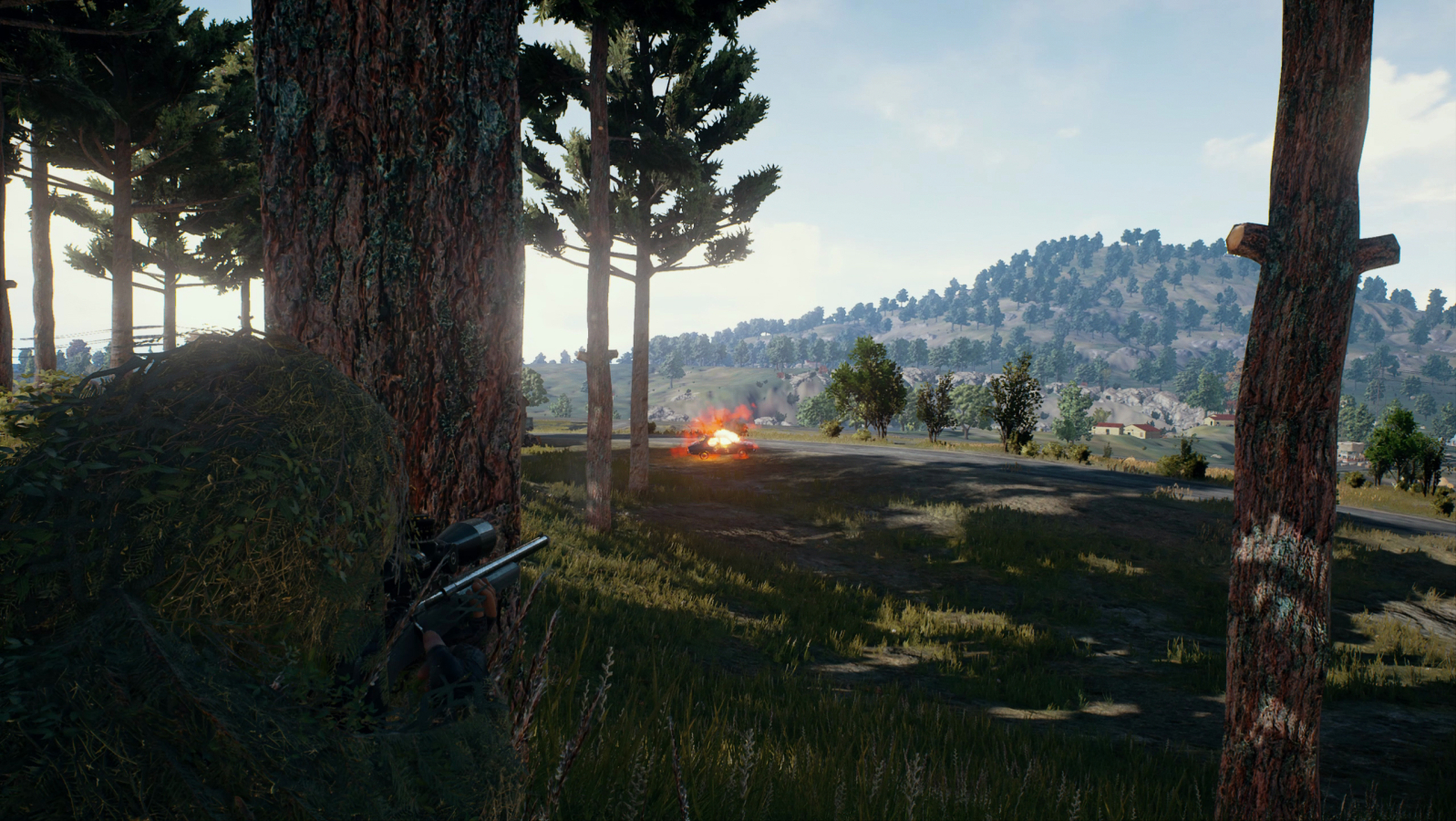
Though he has a vision for Battlegrounds and the esport that might be spun out of it, Greene is absolutely willing to make changes and tweaks to improve the competitive side of things, based on what players feel is needed. For instance, during the Invitational, the red zone was removed, letting players travel across the map without fear of random bombardments. It might be that this becomes an option across the board, if enough players are keen on it.
"We're pretty flexible with what shape the esports side of things takes. All through development we've listened to the community to get their feedback on what can make the game great. We have our own vision, but really it's what the community feels happy with. And it's the same with its potential as an esport: we have an idea of what will work, but the community will tell us what they want."
Ultimately, Greene and PUBG Corp don't want to make any hard plans about the competitive elements without player support, and they don't want to make the mistake a lot of games have made by calling it 'esports ready' out of the gate. The focus right now is on making it the best battle royale game it can be. "It's not a sprint, it's a marathon," he says.
As for its long-term future as an esport, both Ellohime and Kongphan are optimistic.
"I believe they have a great chance at making it an enjoyable competition for everyone involved. To me, it has all the right ingredients to make a spectacular esport," says Ellohime. Though he mentions the caveat that it would need to solve the issue of how to present the action for the audience, when there are up to 100 players and different battles all vying for attention.
"It's such an entertaining game to watch," adds Kongphan. "With fine tuning and adjustments to keep the momentum of entertainment throughout the game, it will flourish."

Fraser is the UK online editor and has actually met The Internet in person. With over a decade of experience, he's been around the block a few times, serving as a freelancer, news editor and prolific reviewer. Strategy games have been a 30-year-long obsession, from tiny RTSs to sprawling political sims, and he never turns down the chance to rave about Total War or Crusader Kings. He's also been known to set up shop in the latest MMO and likes to wind down with an endlessly deep, systemic RPG. These days, when he's not editing, he can usually be found writing features that are 1,000 words too long or talking about his dog.

